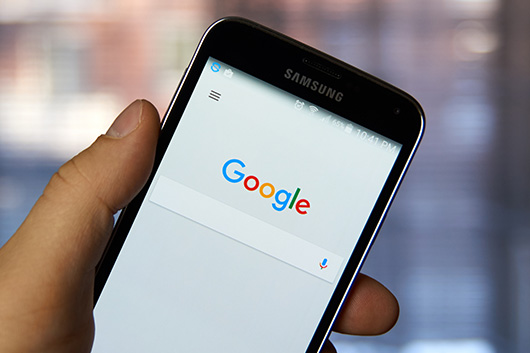

Last month Google announced a significant shift in indexing. Instead of ranking the desktop version of websites, they will instead switch to ranking the mobile versions. This change will impact all businesses with an online presence. How much you’ll be affected and what your clinic or practice needs to do to prepare depends on your existing setup.
Before now, indexing the desktop version of a site made sense. After all, this is where the majority of users did their searching. But with over 50 percent of Google searches now carried out via a mobile device, this is no longer the case. Because of this the quality of the results is being impacted.
When a user searches on a mobile device they’re currently served up the ‘best’ results based on the desktop versions. However, because mobile sites often have less content, if the mobile site they’re directed to doesn’t have the content the results indicate it can lead to dissatisfaction. With mobile-indexing this won’t happen.
When Google’s mobile-index algorithm is fully implemented, Googlebots will crawl the mobile version of your clinic or practice site and re-rank it accordingly. If your site isn’t ready for these new crawlers, your ranking is likely to be negatively affected. Are you ready?
If you have a responsive/dynamic site you won’t really be affected because your mobile content is the same as your desktop. If your site is already ranking well in search, it will continue to do so in line with your optimisation efforts.
If you have a mobile optimised or dedicated mobile site which is distinct from your desktop version, you’ll need to make changes to ensure your mobile site is optimised for search. If your mobile site content and markup is insufficient, your ranking may drop.
If you don’t have a mobile version of your site you should be looking to rectify this. In the meantime, Google will continue to index the desktop version but will do so as mobile Googlebot. If you’re currently developing a mobile site, it’s better to stick with your desktop version than implement an unfinished mobile site.
If you have a responsive site, you don’t need to do anything at this stage. If you have a desktop only site you need to consider optimising for mobile – see Google’s mobile friendly guide. If you have a mobile version of your site, you should look to do the following:
It’s going to take a while for Google to make the transition, so there’s no need to panic. But if your practice or clinic does need to make changes, the sooner optimise your site for mobile indexing, the better.
If you have any questions you can email Google via the Webmasters Forum. If you need any help bringing your medical website in line with mobile-indexing, give us a call today.